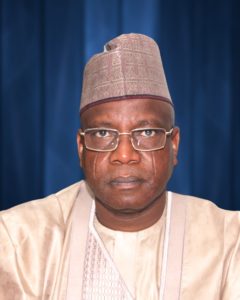Politics, in its rawest form, is not merely a contest of ideas—it is a crucible of contradictions, a theatre where loyalty is often met with betrayal, and sacrifice with silence. It has increasingly become a game of sepulchral irony—a procession of coffins built by men who are denied the honour of burial rights. Indeed, the political arena often celebrates the despot and forgets the democrat; it venerates the tyrant while ridiculing the freedom fighter. As George Orwell aptly noted, “In a time of universal deceit, telling the truth is a revolutionary act.”
Democracy, for all its philosophical grandeur, remains an imperfect enterprise—an elusive ideal clothed in procedural rituals. It is not merely a destination but a difficult journey fraught with elections to conduct, rights to assert, grievances to mediate, and institutions to construct. To the idealist, democracy is exhilarating, a revelation of civic possibility. But to the pragmatist, it often disappoints—particularly when its dividends are delayed and its promises deferred. It is the paradox of democratic euphoria and existential fatigue.
In contemporary Nigeria, politics has ceased to be a battle of ideologies. It has tragically degenerated into ad hominem theatrics, where personalities are assailed rather than policies debated. Many of us have searched in vain for genuine breakthroughs through political structures, only to find ourselves enmeshed in a vicious cycle of resentment, ethnic chauvinism, and ideological vacuum. Politics, to some of us, has become a metaphorical inferno—an emotional hellscape where loyalty is a liability and truth an abomination.
The sidelining of foundational members who toiled, sacrificed, and bled to build the party is not only strategically reckless but morally repugnant. Such betrayal is reminiscent of what Niccolò Machiavelli warned: “He who causes another to become powerful ruins himself.” A good politician is not the one who merely decries the filth of the river, but the one who rolls up his sleeves and cleans it. True leadership is not diagnostic—it is curative.
The APC must not become a repository of discarded desperadoes, a sanctuary for the corrupt, a fellowship of the wicked, or a congregation of self-interested political vagrants. The party must rise above being a harbour for kleptocratic opportunists, political mercenaries, or ideological vagrants seeking asylum from accountability. Many of those now trooping into our fold are not converts but escapees—fugitives from justice, masquerading as patriots.
The expedient path to political longevity is not perpetual decamping or cosmetic reconciliation; it is authentic dialogue, restitution, and recognition. Let those who bore the cross of your emergence also wear the crown of your triumph. Political amnesia is a dangerous affliction; those who suffer it seldom escape history’s unforgiving judgment.
To my Governor and Mr. President: do not settle for a one-term footnote in Nigeria’s annals. Aspire instead to etch your names in the granite of posterity. But remember: you cannot win the masses without first winning those who laboured in the vineyard of your victory. The moral arc of politics bends not merely toward justice but toward loyalty. To discard your foot soldiers in pursuit of fair-weather friends is to dance on the grave of your own legitimacy.
Political immorality reaches its nadir when leaders elevate adversaries while emasculating allies. To ignore the men and women who sacrificed their resources, time, and reputations for your ascent is to plant the seeds of treachery in the fertile soil of ambition. As the African proverb goes, “He who burns his house down for warmth shall freeze in the ashes.”
The ongoing pell-mell decamping at this embryonic stage of governance is not political strategy; it is delusional choreography—a performance of disarray. A party must welcome new members, yes, but not as a harum-scarum horde with no ideological compass or organisational discipline. Let the party be organic, not a Frankenstein’s monster of mismatched agendas.
A one-time president or governor is a candidate for political obscurity—or worse, judicial vendetta. The spectre of revenge looms large when successors are not allies but adversaries. Therefore, the best insurance against political damnation is not power-hoarding or sycophancy—it is transformational governance. Win hearts, not just votes.
A failed politician is not the one who loses an election, but the one who applies the wrong remedy to political wounds. In politics, your enemies may forgive, but your supporters never forget how you made them feel—used, discarded, and unacknowledged.
To the APC: rally your wounded loyalists. Do not chase shadows while your house burns. These new entrants may smile with you, but their eyes are watching. They will not trust you, for they have seen how you treat those who built your tent. A man who murders his parents and then pleads for mercy because he is an orphan is the epitome of political hypocrisy.
Let not the cacophony of selfish advisers derail you from governance. For in the end, history is the final judge, and it remembers not your intentions but your outcomes.


